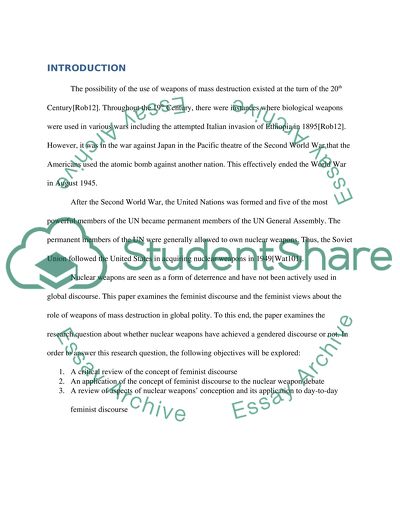Cite this document
(“Feminist View In Nuclear Discourse Essay Example | Topics and Well Written Essays - 1750 words”, n.d.)
Feminist View In Nuclear Discourse Essay Example | Topics and Well Written Essays - 1750 words. Retrieved from https://studentshare.org/people/1644543-feminist-view-in-nuclear-discourse
Feminist View In Nuclear Discourse Essay Example | Topics and Well Written Essays - 1750 words. Retrieved from https://studentshare.org/people/1644543-feminist-view-in-nuclear-discourse
(Feminist View In Nuclear Discourse Essay Example | Topics and Well Written Essays - 1750 Words)
Feminist View In Nuclear Discourse Essay Example | Topics and Well Written Essays - 1750 Words. https://studentshare.org/people/1644543-feminist-view-in-nuclear-discourse.
Feminist View In Nuclear Discourse Essay Example | Topics and Well Written Essays - 1750 Words. https://studentshare.org/people/1644543-feminist-view-in-nuclear-discourse.
“Feminist View In Nuclear Discourse Essay Example | Topics and Well Written Essays - 1750 Words”, n.d. https://studentshare.org/people/1644543-feminist-view-in-nuclear-discourse.


